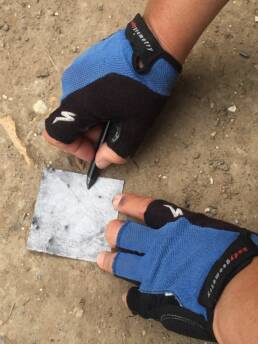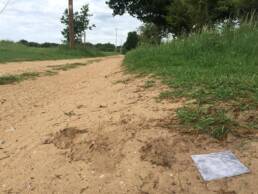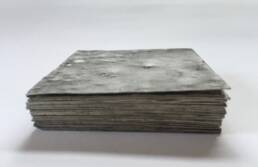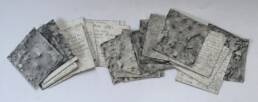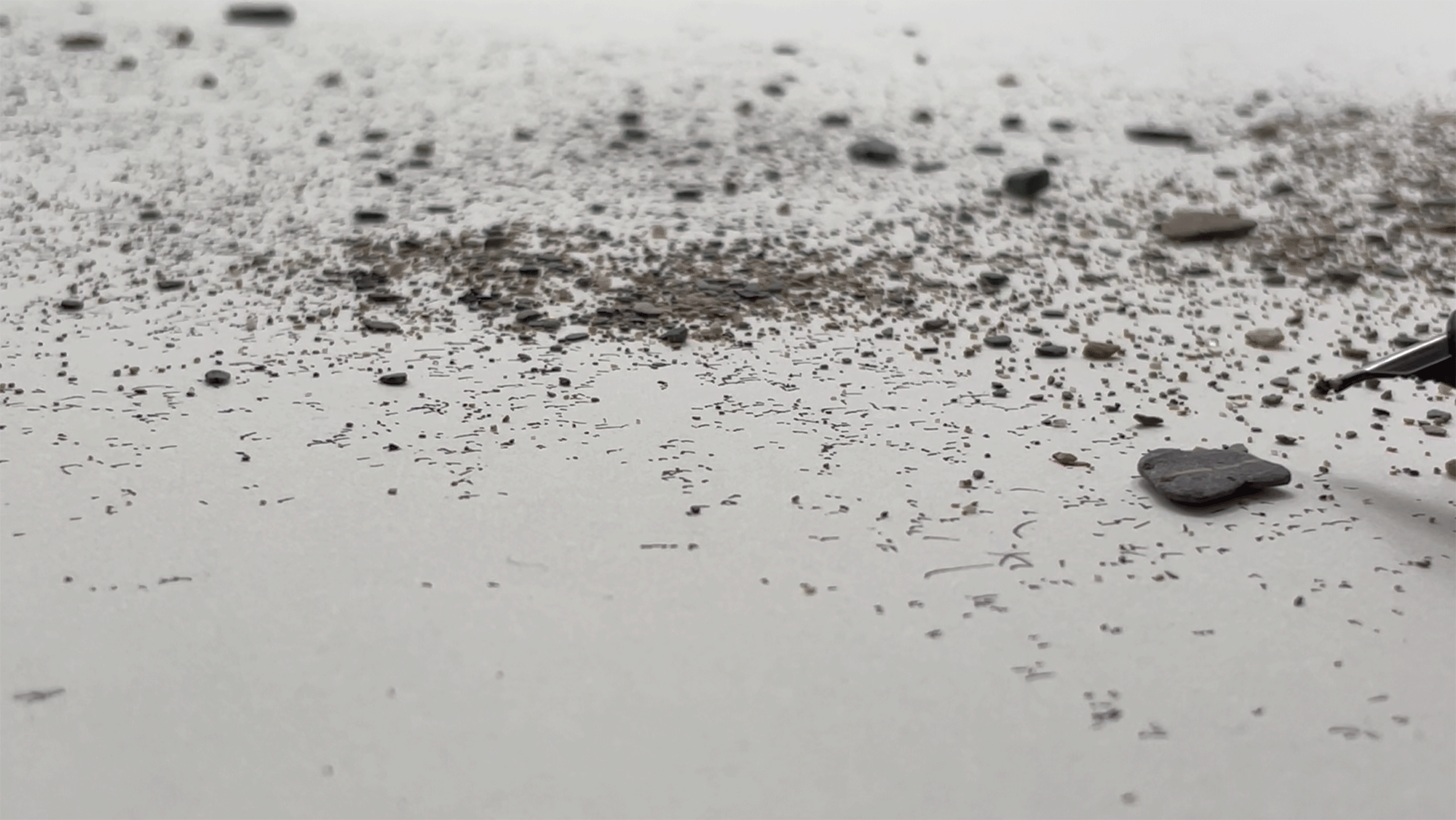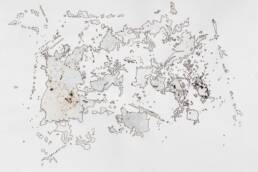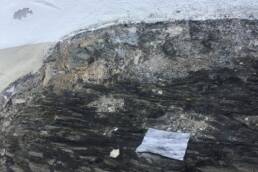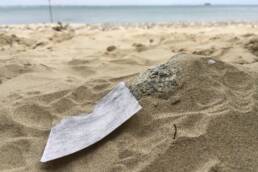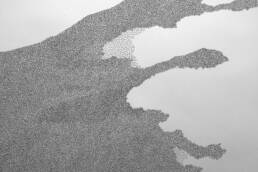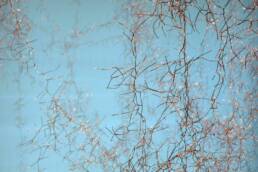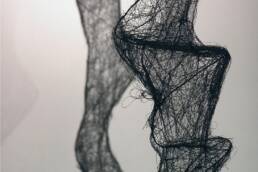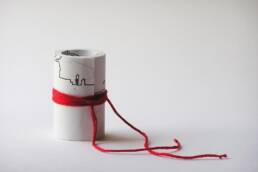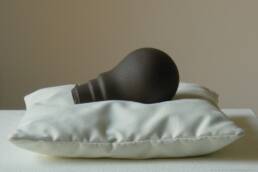A Line Across England
2016 - 2018
Following a line of ancient tracks from Norfolk to Weymouth: Peddars Way, Icknield Way, Ridgeway …
Following a line of ancient tracks from Norfolk to Weymouth, taking pencil rubbings of the ground along the way. Beginning at the start of the Peddars Way on the beach at Norfolk, and finishing at the sea in Weymouth. This journey crossed fields and towns, hills and valleys, following a line of chalk and flint linking the Peddars Way, Icknield Way, Ridgeway, Swan’s Way and Smuggler’s Way.
This work is part of Groundlines, a series of journeys on foot or by bicycle.
Groundlines
Groundlines is a series of artworks created during journeys made by foot or bicycle, following tracks and lines in the landscape. These journeys include A Line Across England, following ancient tracks from Norfolk to Weymouth; An Island Line, a coastal loop of the Isle of Wight; and Five Rivers Line, a line connecting five rivers in Germany. For Made of Walking (La Romieu), I adapted Groundlines into an event, Walking a line – encounters through drawing.
I use a lightweight and portable kit consisting of small portable 7cm2 paper, pencils and pencil sharpener. On one side I carefully make a rubbing of the surface of the track, whether sand, mud, grass or tarmac, recording how it is at this moment in time, and on the other side I note the number in sequence, location, date, brief description of track and anything else of interest. Each rubbing is photographed at the time.
Initially I planned the exact spots, however, as the following quote written soon after creating A Line Across England shows, I subsequently interwove the artwork more closely with the journey itself, stopping when somewhere catches my eye, or feels like a significant place, or I pause to rest. Sometimes there is nobody around, and at other times they are in crowded public areas:
“So much for best laid plans: 6B pencil for start and ends of each major track, 4B for significant places and 2B for in-between. Scary barking dog at the end of the track in Norfolk put paid to that plan and a broken lead in the 4B made it impossible to sharpen. So instead, as with the trip itself, plans were adapted and a more flexible system for the realities of a trip on foot or bicycle came into place.”
The line travelled is both straight and meandering as I discover or hear about unexpected areas that might be of interest, adapt to the weather, finding food, water and overnight camp spots, or to sort out any problems with the bike. The slow pace of travel allows for opportunities to meet people I might not otherwise meet, and the memory of these encounters with people and places are absorbed into the journey of the line.
In pausing to take a ground rubbing my senses are heightened,from touching the ground, imagining what lies below, listening to sounds (from the quietest rustlings to loud noises) and noticing scents, to feeling and being aware of the elements (whether sun, wind or rain). These drawings offer a way to listen to the ground, connect to the past, present and future of these tracks and lines in the landscape, to consider place, people, history and environment, and notice what I might otherwise overlook. Together, these walks generate a wider mapping of the surface of the ground, creating a visual language and system of communication that crosses borders and boundaries. It is both subjective and objective, fluid and changing, recording a moment in time.
I wrote about Groundlines for Living Maps Review (Spring 2022 Edition). Read more about it and find the link to the article here: Groundlines and Puddle Worlds: maps as records of real and imaginary worlds.
A search for Groundlines on this website will also show other works in the series.
